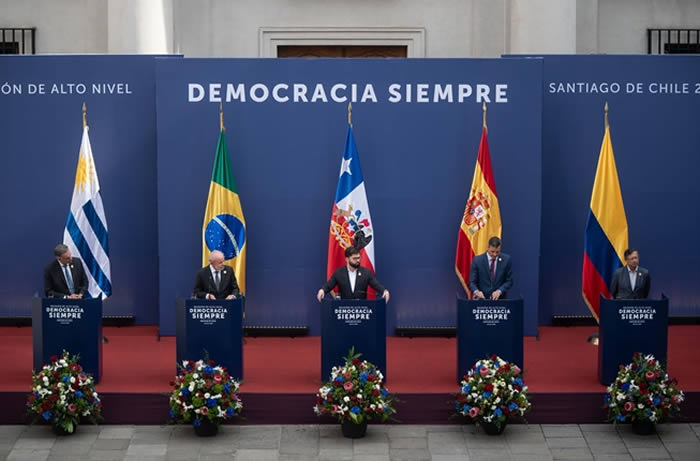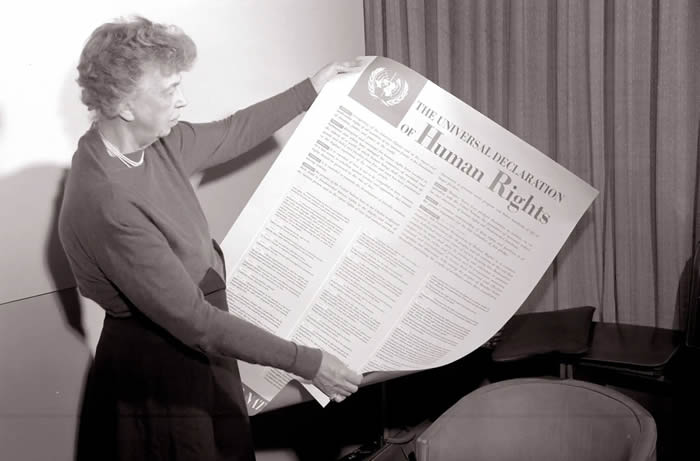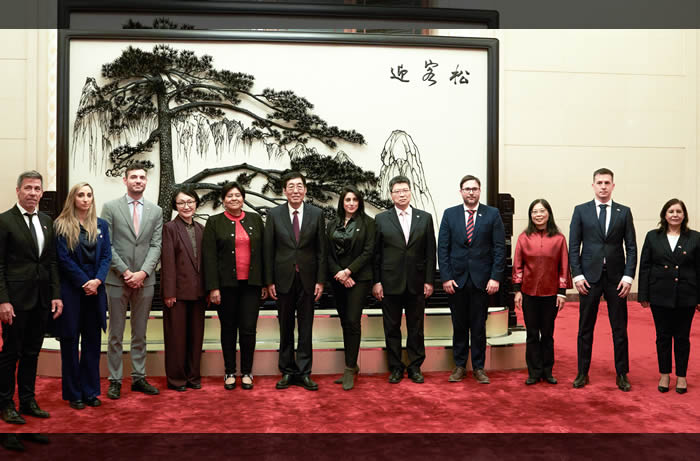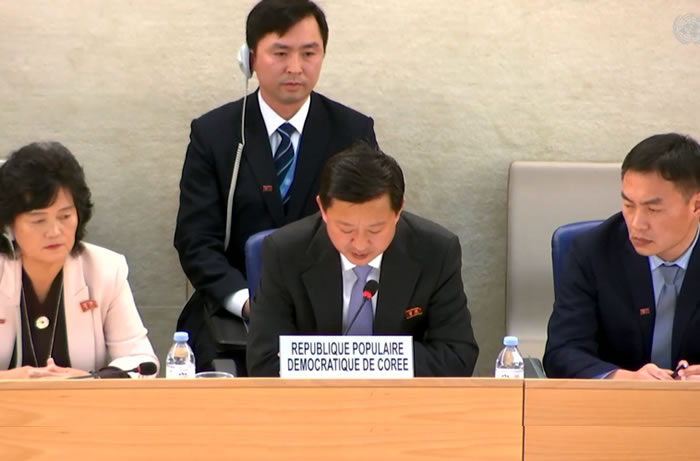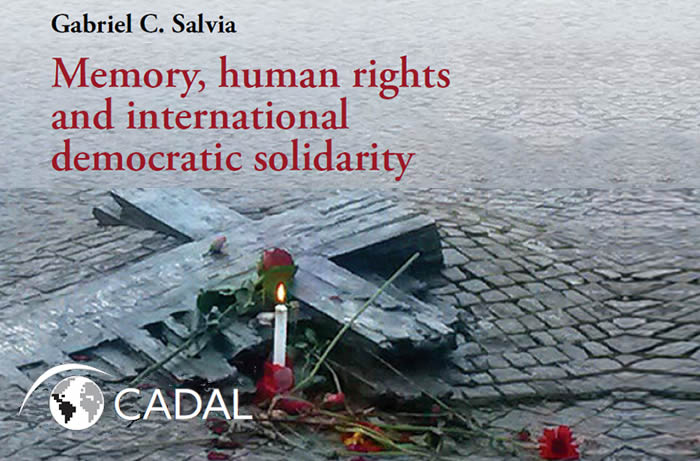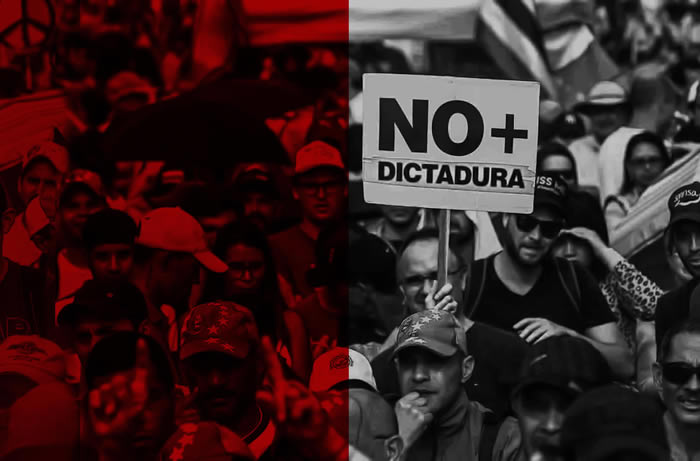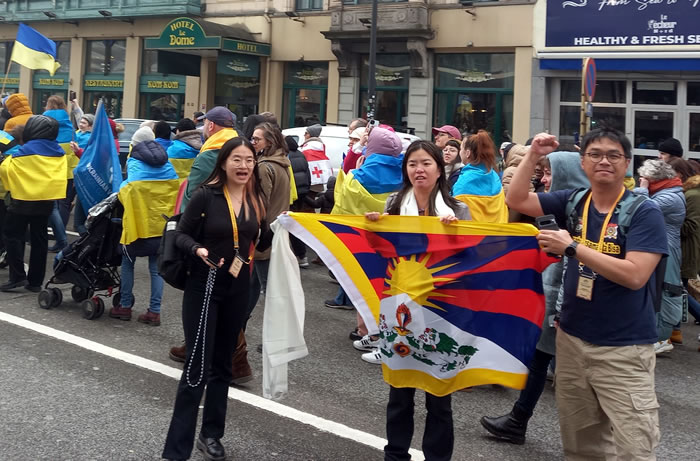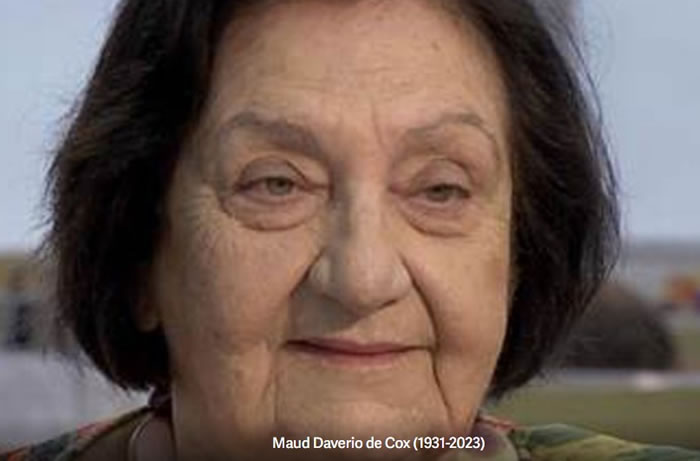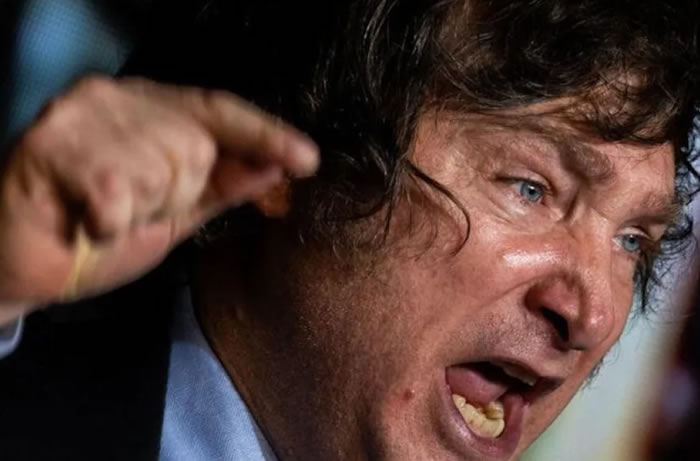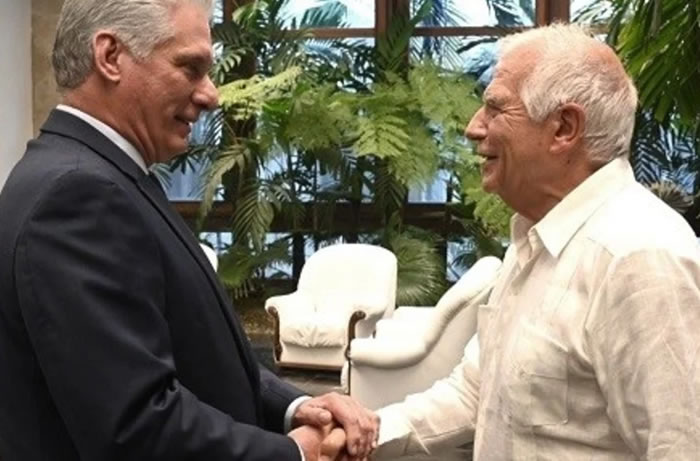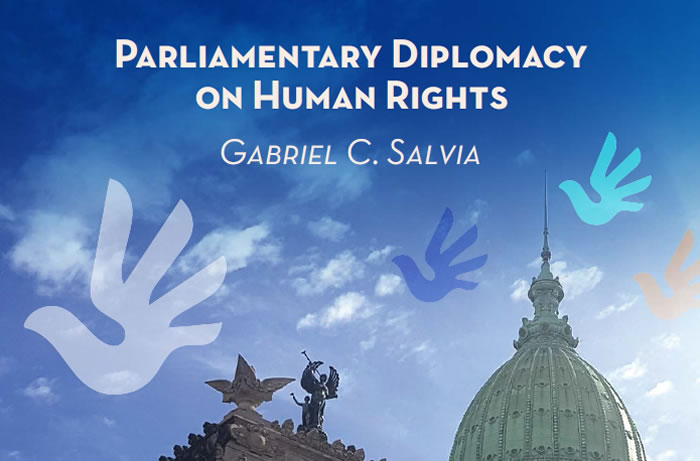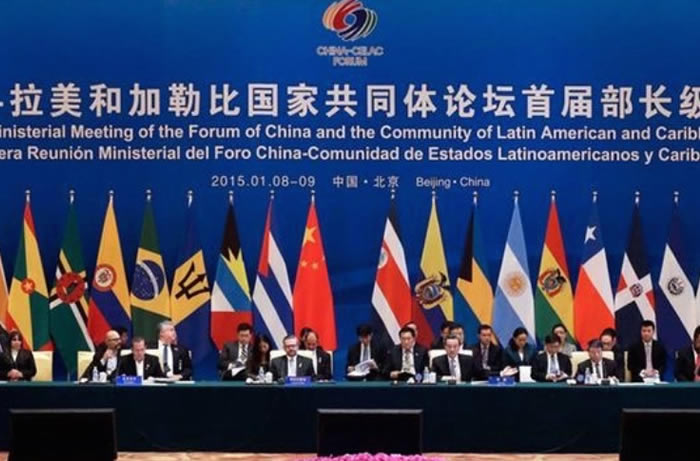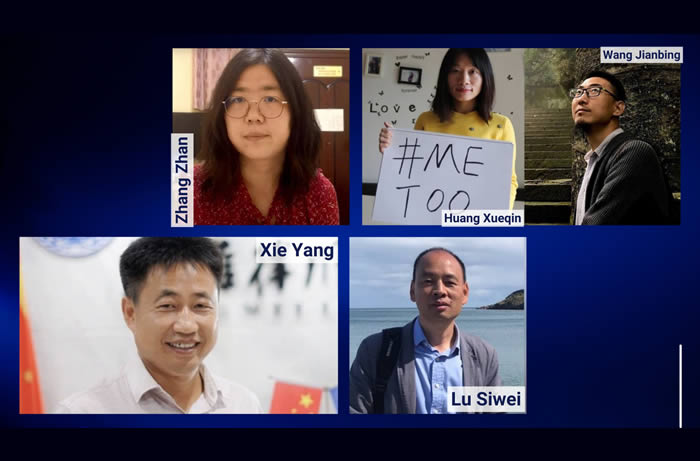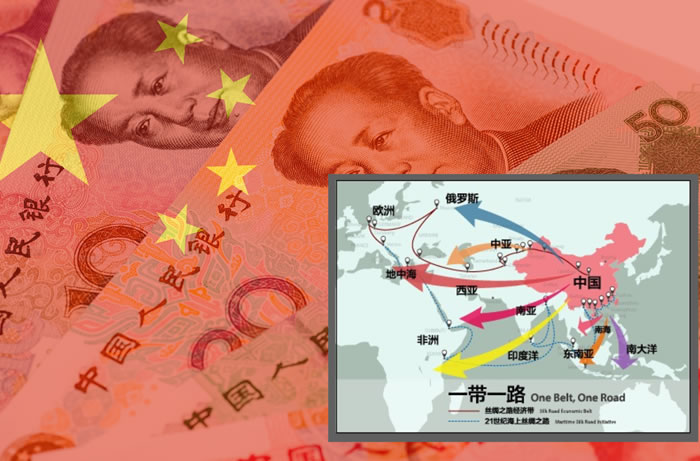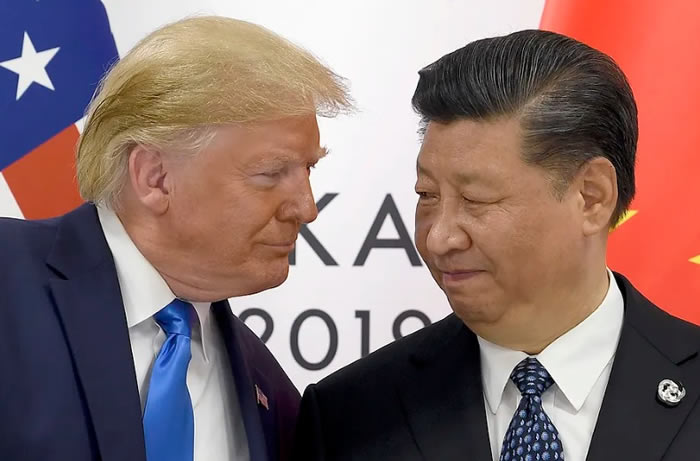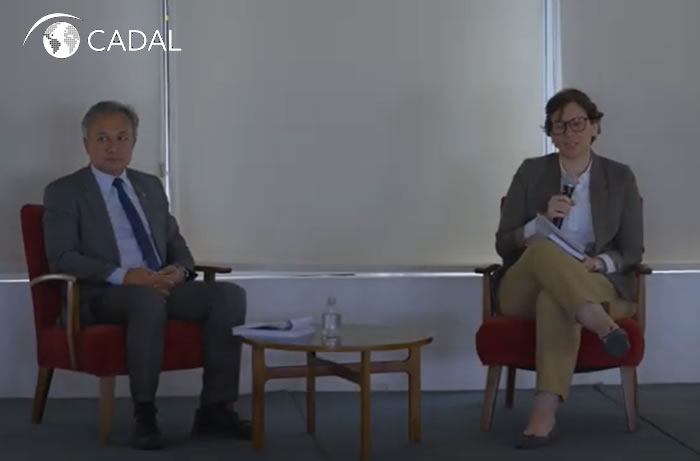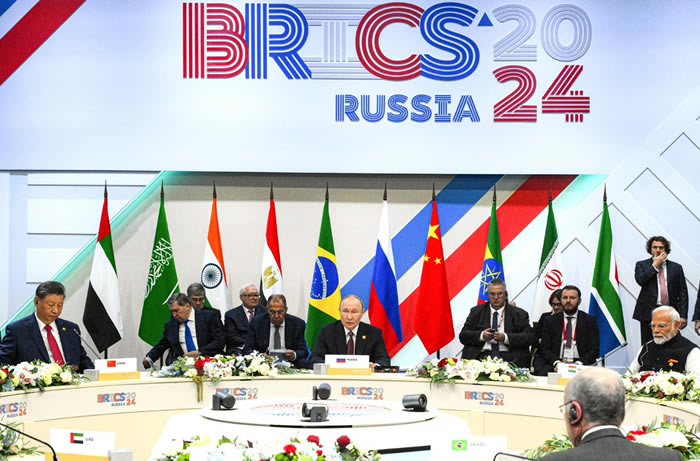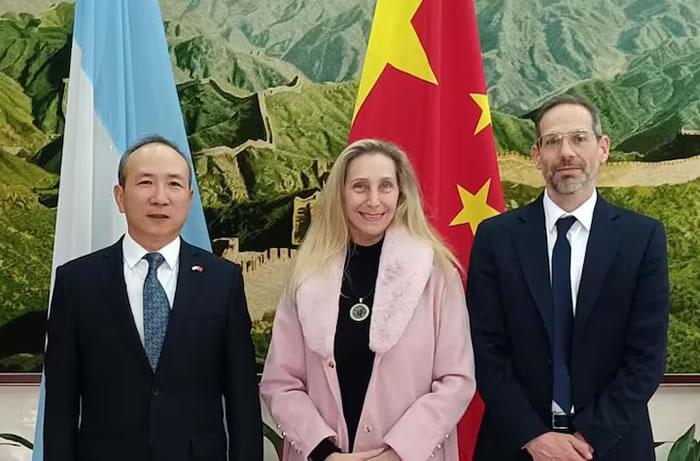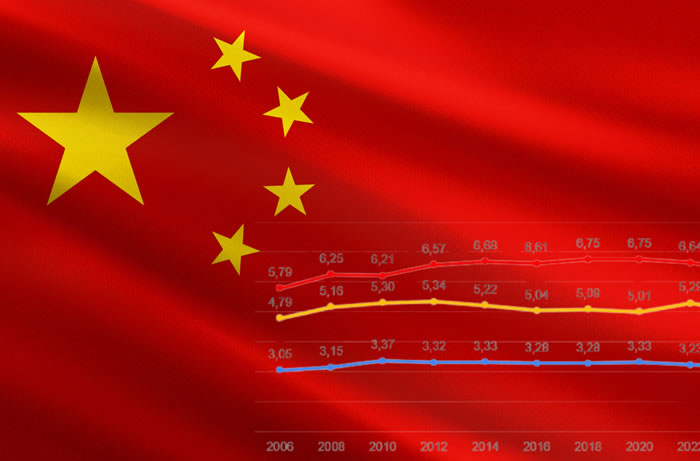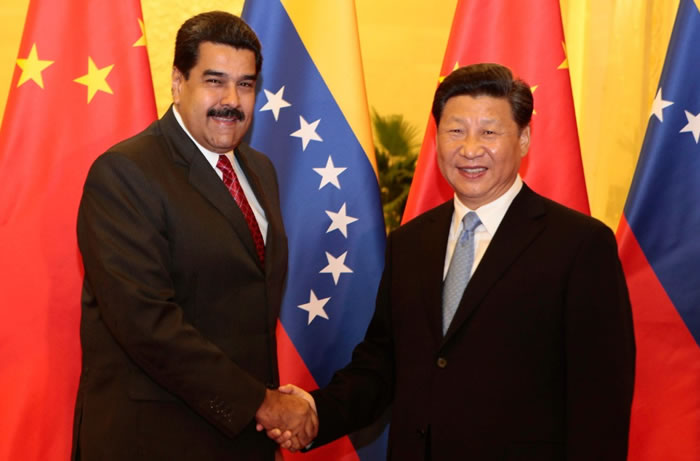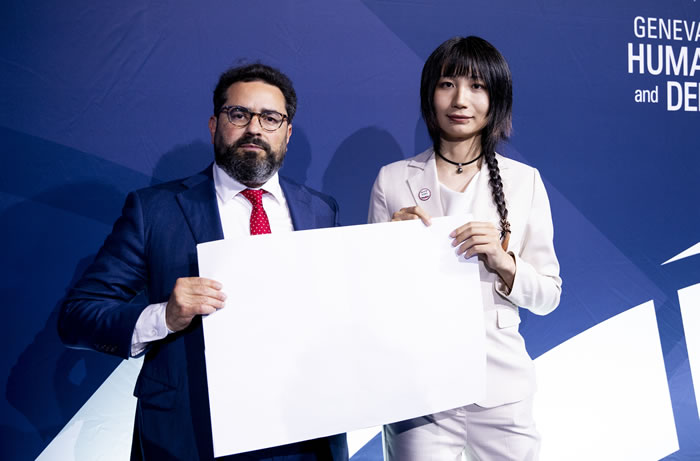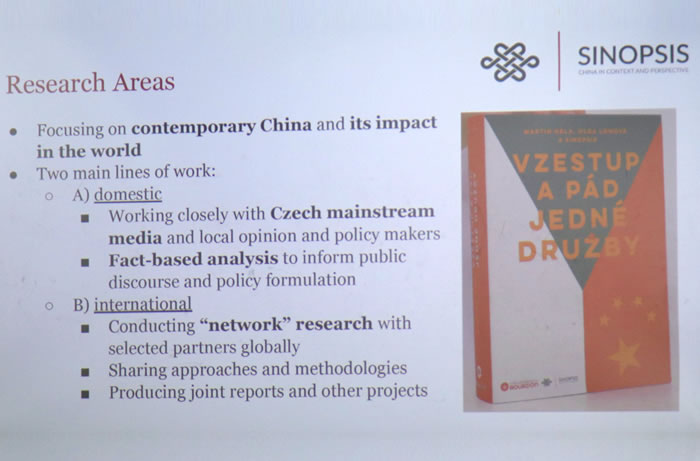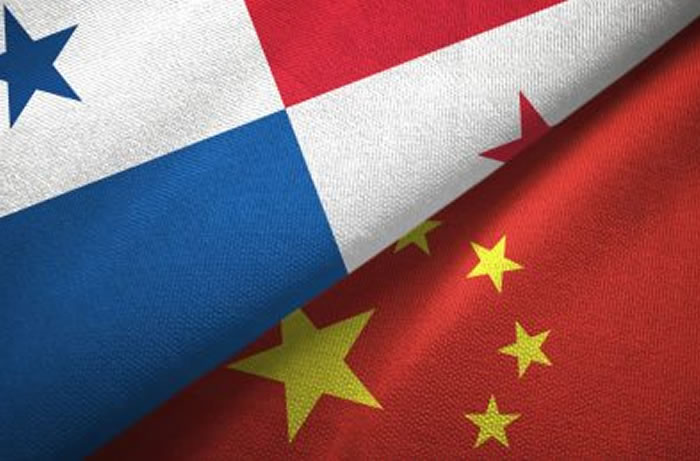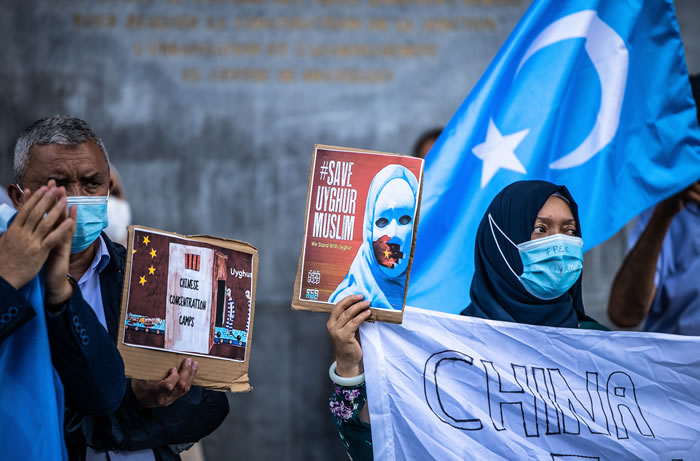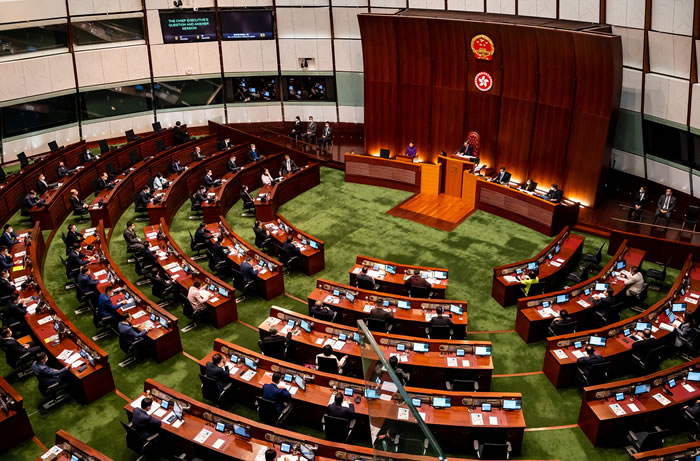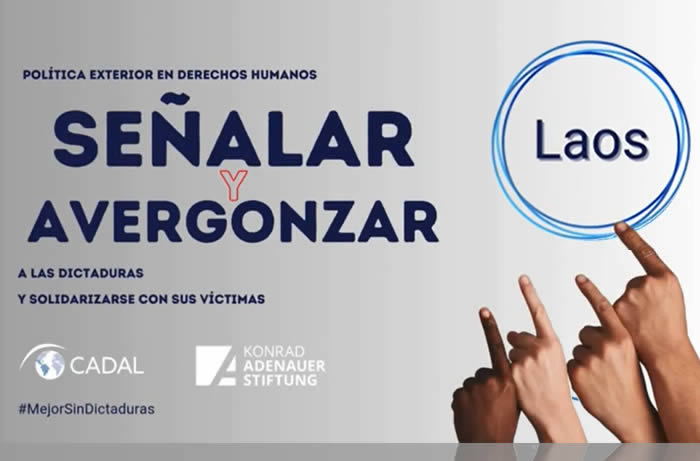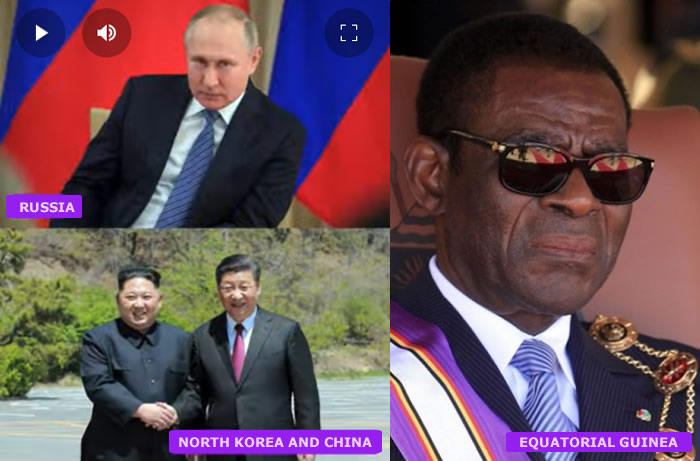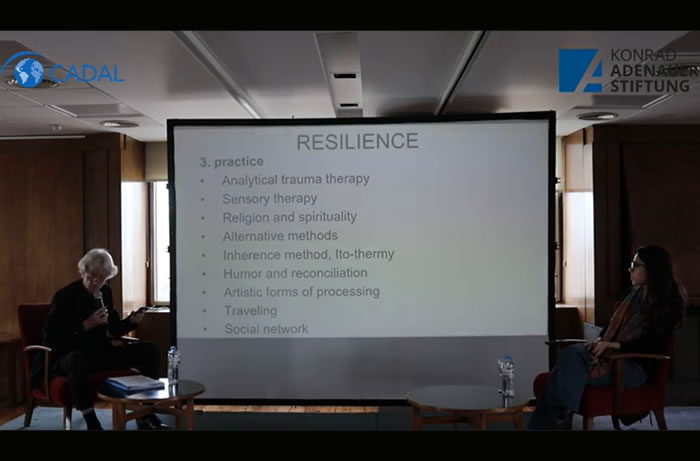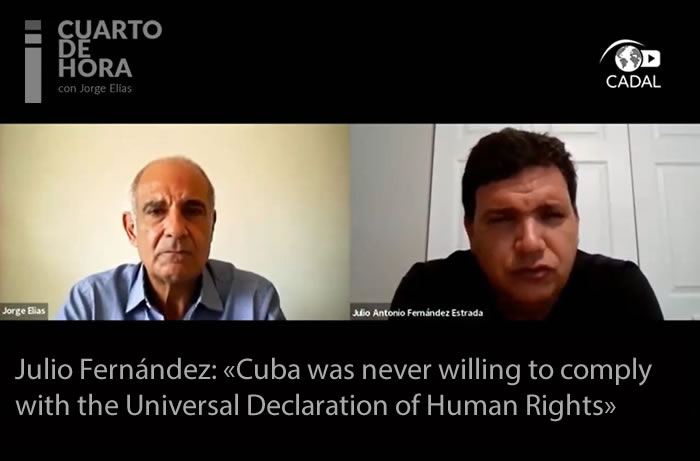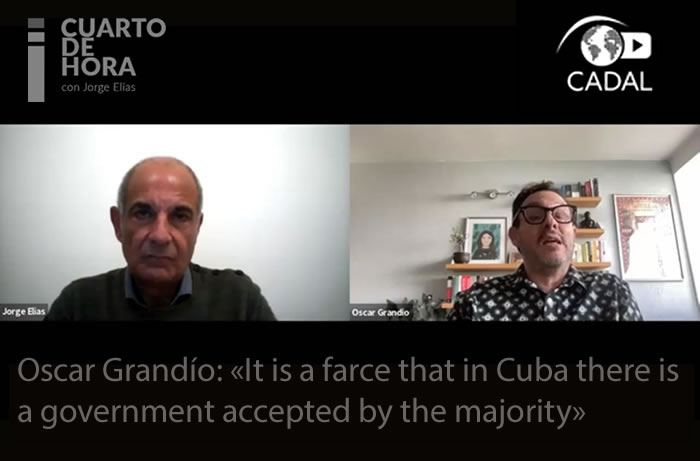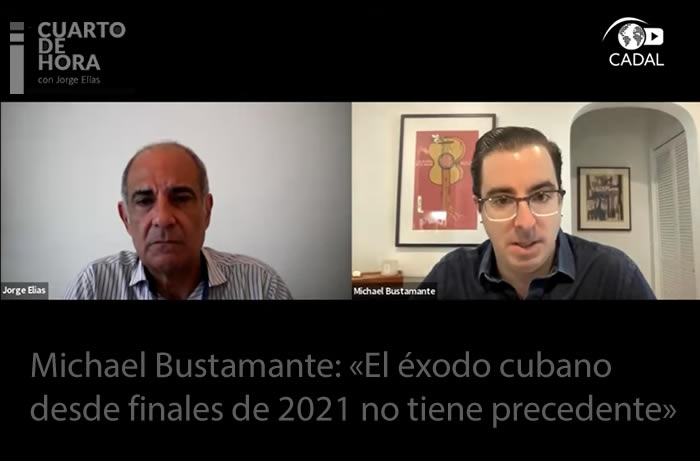Articles
The Sinic Analysis
 09-29-2023
09-29-2023Should Chile point out human rights violations in China?
That China is a dictatorship and its victims are counted in millions is more than documented, and with its anti-democracy narrative and its global economic influence the Chinese Communist Party regime is the greatest threat to the universal ideal of human rights. The more countries denounce its human rights situation the more the Asian giant’s reprisals will be cushioned, the more changes of political openness it will favor and the more moral authority it will grant to point the finger at other dictatorships.
By Gabriel C. Salvia
The most coherent way to remember in Chile the 50 years of the military coup and to exercise the Memory in human rights is to denounce the situation in all the countries of the world that currently live under dictatorship, where people cannot express themselves and associate freely or protest or participate in political life. And to do so without double standards or self-censorship, and because those who were victims must help the current victims of non-democratic governments that criminalize the exercise of human rights.
That is why the criticism received by President Gabriel Boric after having responded in an interview with The Washington Post that in his next official visit to China he will raise the issue of human rights in the Asian giant is striking: "What we can demand from everyone is respect for international law and human rights. This applies to all countries in the world, including China".
Having lived through a dictatorship characterized by political authoritarianism and economic openness, and having received in those leaden years important signs of international solidarity, what is really striking is that for the first time a progressive Chilean president pronounces himself on the human rights situation in the world's largest dictatorship, which several academics qualify as fascist.
That China is a dictatorship and its victims number in the millions is more than documented, and with its anti-democracy narrative and global economic influence the Chinese Communist Party regime is the greatest threat to the universal ideal of human rights.
Therefore, those in Chile who question Boric with arguments of political pragmatism should read, to begin with, Articles 1 and 2 of the Universal Declaration of Human Rights and ask themselves why they can apply to their own country, but not to people born and living in China. How can progressive sectors in Chile adopt such an unsupportive and certainly discriminatory attitude?
On the other hand, Chile can export to the whole world and receive transparent investments from different origins, but to fear retaliation from China for putting human rights above economic interest, and to pretend that it is the other way around, is to ignore the post-World War II motives that led to the adoption of the 1948 Declaration.
The national interest of a country that considers itself democratic is the defense of human dignity, otherwise nothing has been learned from history and it represents an affront to millions of victims of totalitarianisms.
This should certainly be a common foreign policy on human rights on the part of the Southern Cone countries. Argentina, Chile and Uruguay have a common past and could lead from Latin America the international commitment to the defense of human rights, which is not limited to regional intervention, but has a global scope and even coordination in intergovernmental organizations.
In the case of China, the more countries denounce its human rights situation, the more it will cushion the Asian giant's reprisals, the more it will favor changes in political openness and the more moral authority it will give to point the finger at other dictatorships.
The Chinese dictatorship and those who defend it argue in favor of cultural and political relativism plus economic pragmatism, denying the universal character of human rights. However, the Chilean Hernán Santa Cruz, the Chinese Pen-Chung Chang, the Cuban Guy Pérez de Cisneros, the Lebanese Charles Malik, the Canadian John Humphrey, the French René Cassin and the American Eleanor Roosevelt were some of the drafters of the Universal Declaration of Human Rights of 1948 who, with their contributions, consecrated the universal sources of the preamble and its 30 articles and whose 75th anniversary of the adoption in Paris will be celebrated on December 10.
If universal respect for human rights matters, then we must applaud Boric's statement to point out the grave situation in China, invite other democratic rulers to follow suit, not fall into the commonplace of the prevalence of economic interests over principles and discuss innovative proposals to promote an effective international commitment to defend human dignity.
 Gabriel C. SalviaGeneral Director of CADALHuman rights activist dedicated to international democratic solidarity. In 2024 he received the Gratias Agit Award from the Ministry of Foreign Affairs of the Czech Republic. He is the author of the books “Memory, human rights and international democratic solidarity” (2024) and “Bailando por un espejismo: apuntes sobre política, economía y diplomacia en los gobiernos de Cristina Fernández de Kirchner” (2017). In addition, he compiled several books, including “75 años de la Declaración Universal de Derechos Humanos: Miradas desde Cuba” (2023), “Human rights in international relations and foreign policy” (2021), “Desafíos para el fortalecimiento democrático en la Argentina” (2015), “Un balance político a 30 años del retorno a la democracia en Argentina” (2013) and “Diplomacy and Human Rights in Cuba” (2011), His opinion columns have been published in several Spanish-language media. He currently publishes in Clarín, Perfil, Infobae and La Nación, in Argentina. He has participated in international conferences in Latin America, Africa, Asia, Europe, the Balkans and the United States. Since 1992 he has served as director of Civil Society Organizations and is a founding member of CADAL. As a journalist, he worked between 1992 and 1997 in print, radio and TV specialized in parliamentary, political and economic issues, and later contributed with interviews in La Nación and Perfil.
Gabriel C. SalviaGeneral Director of CADALHuman rights activist dedicated to international democratic solidarity. In 2024 he received the Gratias Agit Award from the Ministry of Foreign Affairs of the Czech Republic. He is the author of the books “Memory, human rights and international democratic solidarity” (2024) and “Bailando por un espejismo: apuntes sobre política, economía y diplomacia en los gobiernos de Cristina Fernández de Kirchner” (2017). In addition, he compiled several books, including “75 años de la Declaración Universal de Derechos Humanos: Miradas desde Cuba” (2023), “Human rights in international relations and foreign policy” (2021), “Desafíos para el fortalecimiento democrático en la Argentina” (2015), “Un balance político a 30 años del retorno a la democracia en Argentina” (2013) and “Diplomacy and Human Rights in Cuba” (2011), His opinion columns have been published in several Spanish-language media. He currently publishes in Clarín, Perfil, Infobae and La Nación, in Argentina. He has participated in international conferences in Latin America, Africa, Asia, Europe, the Balkans and the United States. Since 1992 he has served as director of Civil Society Organizations and is a founding member of CADAL. As a journalist, he worked between 1992 and 1997 in print, radio and TV specialized in parliamentary, political and economic issues, and later contributed with interviews in La Nación and Perfil.
The most coherent way to remember in Chile the 50 years of the military coup and to exercise the Memory in human rights is to denounce the situation in all the countries of the world that currently live under dictatorship, where people cannot express themselves and associate freely or protest or participate in political life. And to do so without double standards or self-censorship, and because those who were victims must help the current victims of non-democratic governments that criminalize the exercise of human rights.
That is why the criticism received by President Gabriel Boric after having responded in an interview with The Washington Post that in his next official visit to China he will raise the issue of human rights in the Asian giant is striking: "What we can demand from everyone is respect for international law and human rights. This applies to all countries in the world, including China".
Having lived through a dictatorship characterized by political authoritarianism and economic openness, and having received in those leaden years important signs of international solidarity, what is really striking is that for the first time a progressive Chilean president pronounces himself on the human rights situation in the world's largest dictatorship, which several academics qualify as fascist.
That China is a dictatorship and its victims number in the millions is more than documented, and with its anti-democracy narrative and global economic influence the Chinese Communist Party regime is the greatest threat to the universal ideal of human rights.
Therefore, those in Chile who question Boric with arguments of political pragmatism should read, to begin with, Articles 1 and 2 of the Universal Declaration of Human Rights and ask themselves why they can apply to their own country, but not to people born and living in China. How can progressive sectors in Chile adopt such an unsupportive and certainly discriminatory attitude?
On the other hand, Chile can export to the whole world and receive transparent investments from different origins, but to fear retaliation from China for putting human rights above economic interest, and to pretend that it is the other way around, is to ignore the post-World War II motives that led to the adoption of the 1948 Declaration.
The national interest of a country that considers itself democratic is the defense of human dignity, otherwise nothing has been learned from history and it represents an affront to millions of victims of totalitarianisms.
This should certainly be a common foreign policy on human rights on the part of the Southern Cone countries. Argentina, Chile and Uruguay have a common past and could lead from Latin America the international commitment to the defense of human rights, which is not limited to regional intervention, but has a global scope and even coordination in intergovernmental organizations.
In the case of China, the more countries denounce its human rights situation, the more it will cushion the Asian giant's reprisals, the more it will favor changes in political openness and the more moral authority it will give to point the finger at other dictatorships.
The Chinese dictatorship and those who defend it argue in favor of cultural and political relativism plus economic pragmatism, denying the universal character of human rights. However, the Chilean Hernán Santa Cruz, the Chinese Pen-Chung Chang, the Cuban Guy Pérez de Cisneros, the Lebanese Charles Malik, the Canadian John Humphrey, the French René Cassin and the American Eleanor Roosevelt were some of the drafters of the Universal Declaration of Human Rights of 1948 who, with their contributions, consecrated the universal sources of the preamble and its 30 articles and whose 75th anniversary of the adoption in Paris will be celebrated on December 10.
If universal respect for human rights matters, then we must applaud Boric's statement to point out the grave situation in China, invite other democratic rulers to follow suit, not fall into the commonplace of the prevalence of economic interests over principles and discuss innovative proposals to promote an effective international commitment to defend human dignity.

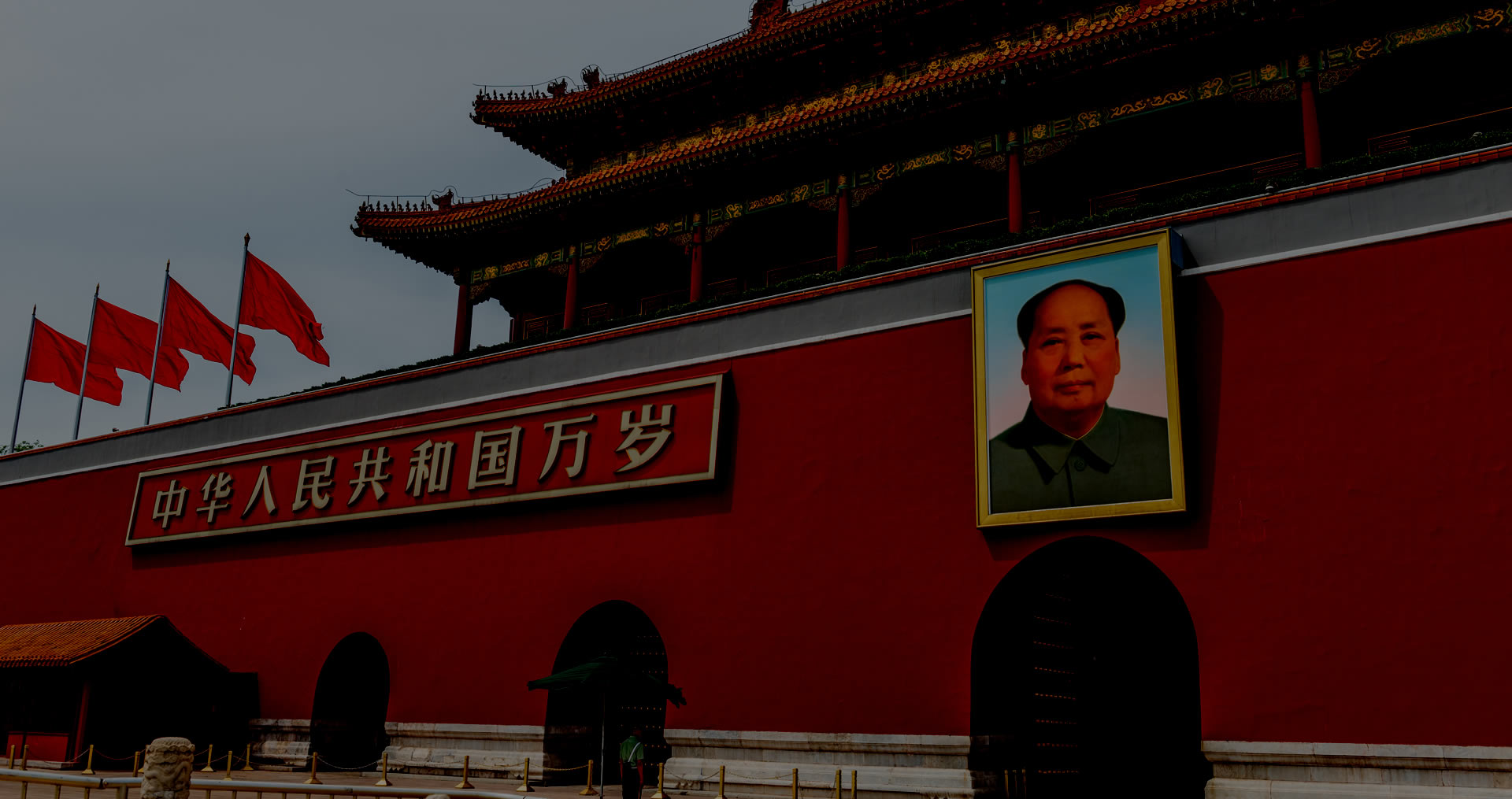


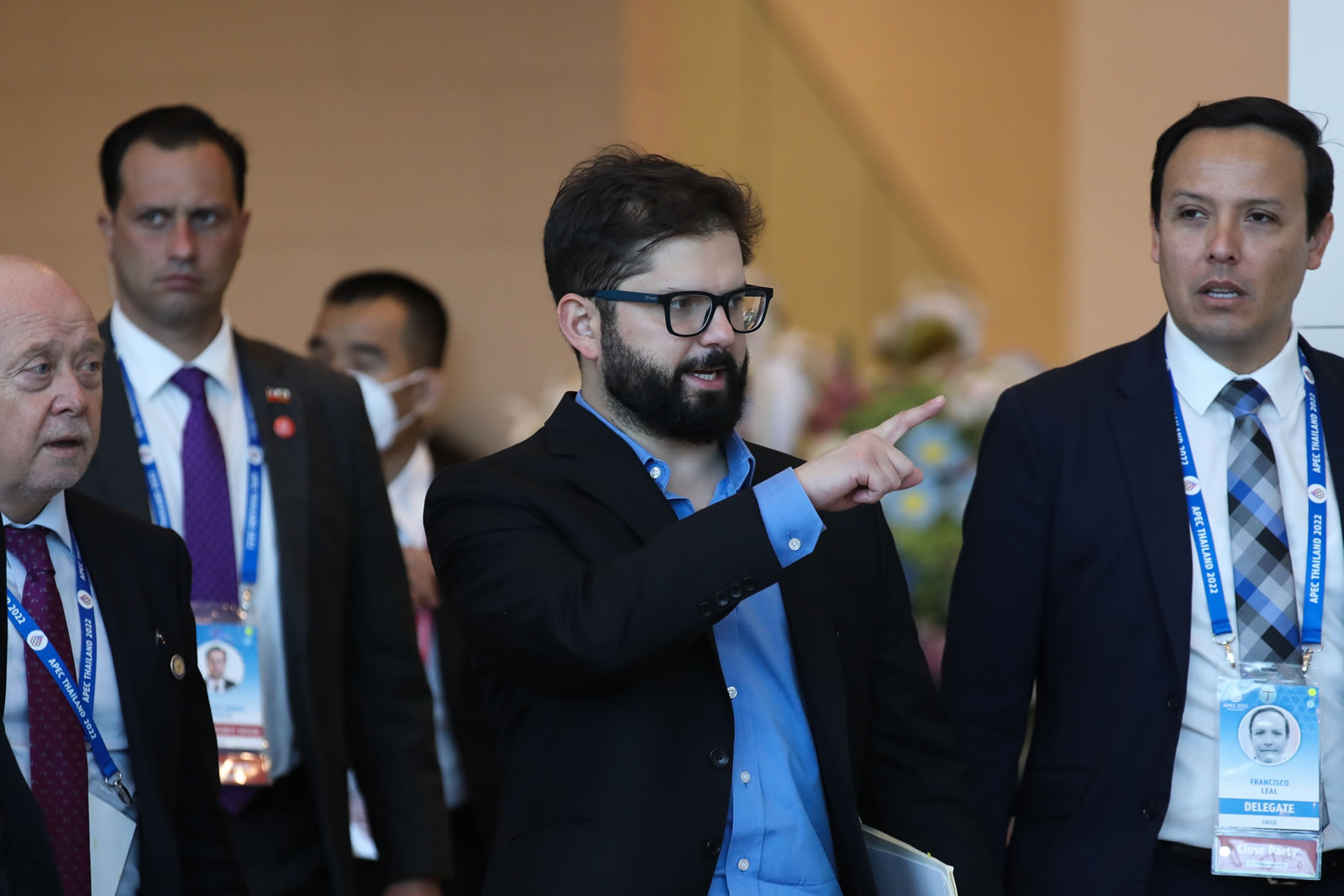
 Leer esta nota en Español
Leer esta nota en Español
